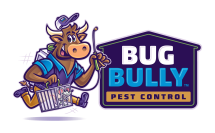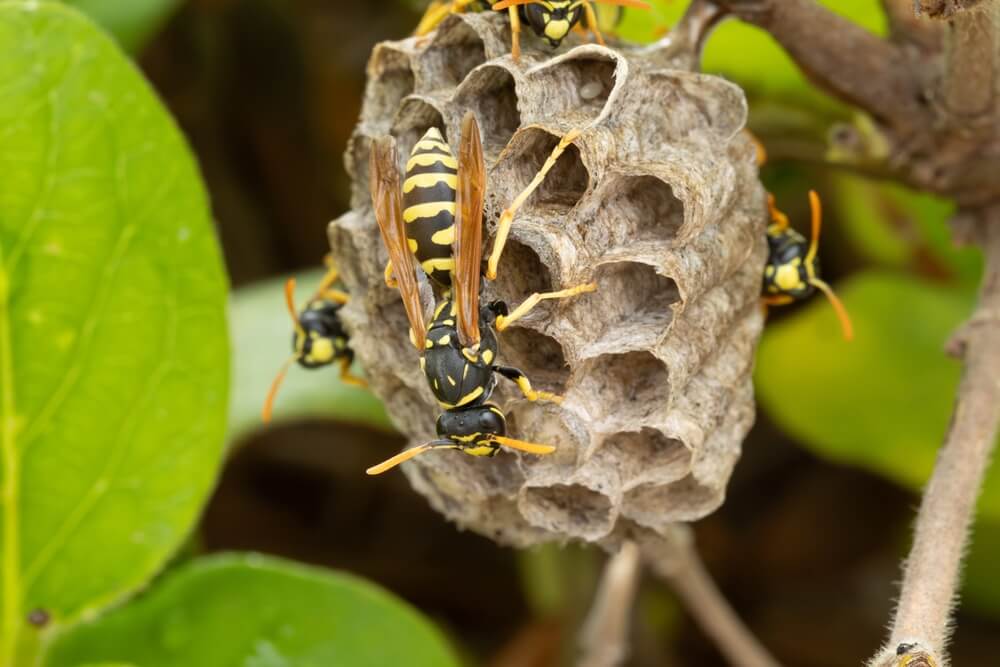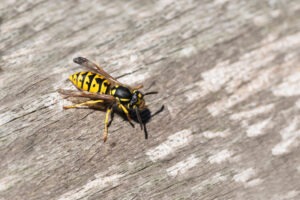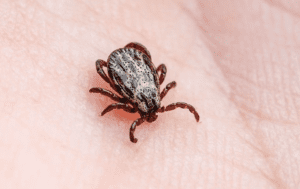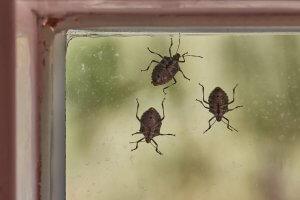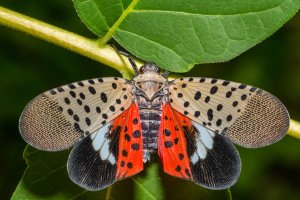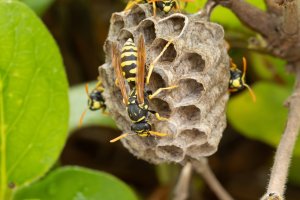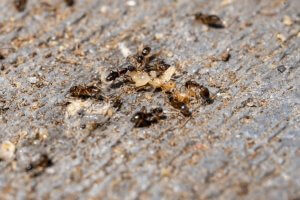In the warmer months, Massachusetts residents often notice umbrella-shaped nests tucked under eaves, porch ceilings, or even patio furniture. These delicate nests usually belong to paper wasps. While less aggressive than yellowjackets or baldfaced hornets, paper wasps are still stinging insects that can pose risks to families, pets, and customers enjoying outdoor dining.
At Bug Bully Rodent & Pest Control, we frequently help homeowners and restaurant owners in Worcester, Framingham, Northborough, and Concord deal with paper wasp infestations. Understanding how to identify them, the problems they cause, and the best methods of paper wasp control is essential for keeping your property safe and comfortable.
This article will cover everything you need to know about paper wasps in Central Massachusetts, including identification, risks, prevention, and when to call a professional paper wasp exterminator.
What are Paper Wasps?
Paper wasps belong to the genus Polistes and are named for their papery nests made from chewed wood fibers mixed with saliva. These nests are open, umbrella-shaped structures with visible hexagonal cells. Unlike hornets and yellowjackets, paper wasps build smaller, more exposed nests.
Adults are slender, about three-quarters to one inch long, with long legs that dangle while they fly. They have narrow waists and smooth bodies with black, yellow, and sometimes reddish markings. Their appearance often causes them to be confused with yellowjackets, though their nests and behavior differ.
Why Paper Wasps Matter in Central Massachusetts
Paper wasps are common throughout Central Massachusetts. Their preference for nesting under eaves, porch ceilings, light fixtures, and even outdoor furniture makes them frequent visitors to homes and restaurants.
For homeowners, this can mean wasps flying near doorways, patios, and decks where families gather. For restaurant owners in Worcester, Framingham, and Concord, paper wasps can interfere with outdoor dining. Customers may feel uneasy eating near buzzing insects, and the risk of stings creates liability concerns.
Though not as aggressive as yellowjackets, paper wasps will sting when their nest is threatened. For individuals with allergies, stings can be dangerous. That makes timely paper wasp control a smart choice for both homes and businesses.
How to Identify Paper Wasps
Identification is the first step in safe management.
- Appearance: Slender bodies, narrow waists, long legs, and black-and-yellow or reddish-brown markings.
- Size: Typically three-quarters to one inch long.
- Flight: Legs hang down as they fly, unlike yellowjackets, which tuck their legs.
- Nests: Open, umbrella-shaped structures with exposed cells, often attached to eaves, overhangs, or outdoor fixtures.
If you see an umbrella-shaped nest in an accessible area, it’s almost always a paper wasp nest.
The Impact on Homeowners
For homeowners and renters, paper wasps can turn porches, decks, and backyards into stress zones. Walking out the front door to find a nest above your head is unnerving. Children and pets are at particular risk since they may not notice wasps before getting too close.
Even a small nest can cause repeated encounters with wasps hovering around doorways, windows, or outdoor play areas. Stings are painful, and for anyone with allergies, they are a medical emergency. Attempting to knock down a nest without protection is risky and often results in stings.
The Impact on Restaurants
For restaurants with patios or outdoor dining in Central Massachusetts, paper wasps can be a major disruption. Customers may refuse to sit outside if they see nests overhead or wasps hovering around tables.
Because paper wasps are attracted to protein and sugar, they may investigate food and drinks left unattended. This not only frustrates diners but also risks negative reviews. Even if nests are not directly visible, their presence near outdoor lighting, signs, or railings can still create discomfort.
Partnering with a paper wasp exterminator is the best way to ensure that outdoor dining areas remain safe and inviting.
Paper Wasp Control in Massachusetts
Unlike some pests, paper wasps often return to the same locations year after year. Control strategies must address both current nests and future prevention. At Bug Bully Rodent & Pest Control, our approach includes:
- Inspecting homes and restaurants for active nests.
- Treating nests with professional-grade products for safe removal.
- Carefully removing nests to prevent regrowth.
- Providing recommendations for reducing nesting sites, such as sealing gaps and using wasp-resistant fixtures.
DIY attempts with sprays or swatters often lead to stings, as paper wasps defend their nests aggressively. Professional paper wasp control ensures safe, thorough results.
Fun Facts About Paper Wasps
- Paper wasps get their name from the papery texture of their nests, made from chewed wood pulp.
- They are beneficial insects, feeding on caterpillars and other pests that damage plants.
- Paper wasps hang their legs while flying, which distinguishes them from bees and yellowjackets.
- Only mated queens survive the winter, starting new colonies each spring.
- Their open umbrella-shaped nests are unique among stinging insects in Massachusetts.
Common Questions Answered
Are paper wasps aggressive?
They are less aggressive than yellowjackets or hornets, but they will sting if their nest is disturbed or threatened.
Do paper wasps sting multiple times?
Yes, unlike honeybees, paper wasps can sting repeatedly because their stingers do not detach.
Can I remove a nest myself?
It’s risky. Even small nests can provoke multiple wasps to sting. Professionals have protective gear and treatments that make removal safe.
Why do paper wasps keep building nests on my house?
They are attracted to sheltered areas such as eaves, porches, and light fixtures. Unpainted or untreated wood can also encourage nesting.
How can restaurants prevent wasps around patios?
Restaurants should inspect for early nests in spring, keep food and trash sealed, and schedule professional treatments. A paper wasp exterminator can provide proactive services.
The Long-Term Outlook in Massachusetts
Paper wasps are native to Massachusetts and will always be present in the environment. While they play a role in controlling plant pests, their tendency to build nests close to human activity makes them a recurring concern.
In Central Massachusetts, nests typically appear in spring and grow throughout summer. By fall, colonies die off except for fertilized queens. Preventing nests early in the season is the best strategy for long-term management.
What Bug Bully Rodent & Pest Control Recommends
If you live in Worcester, Framingham, Northborough, or Concord, here’s what we recommend for dealing with paper wasps:
- Inspect your property in spring for small, early nests.
- Do not attempt DIY removal, especially for nests near doors, patios, or play areas.
- Keep outdoor food and drinks covered to reduce attraction.
- Work with a professional paper wasp exterminator for safe removal and preventive treatments.
Our team is trained to handle paper wasp control safely and effectively, protecting both homes and businesses from these stinging insects.
A Final Word
Paper wasps may not be as aggressive as yellowjackets, but their nests in high-traffic areas pose risks for homeowners and restaurant owners alike. Families in Worcester, Framingham, and Northborough want to enjoy their porches and decks without fear. Restaurant owners in Concord want diners to feel safe at outdoor tables.
The good news is that with professional paper wasp control, you can keep your property protected. At Bug Bully Rodent & Pest Control, we are committed to helping our community live and dine comfortably without the threat of stings.
Don’t let paper wasps claim your home or business. Contact the pest experts and enjoy peace of mind knowing your property is protected.
